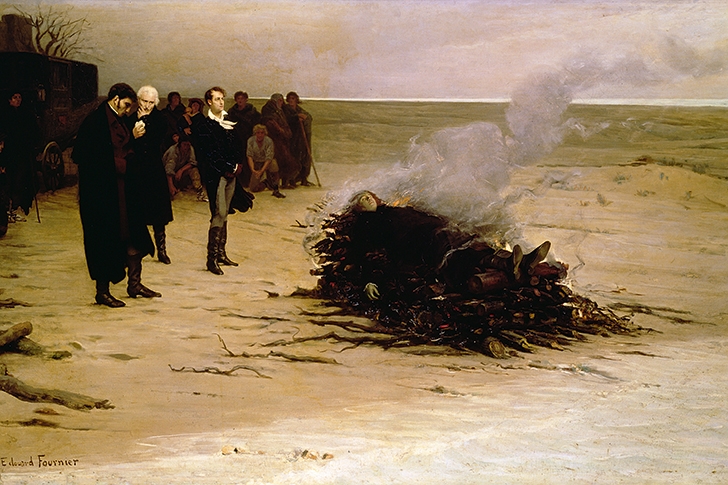In Deaths of the Poets two living examples of the species, Paul Farley and Michael Symmons Roberts, retail the closing moments of close on 30 poetical lives, ranging from Thomas Chatterton to Robert Frost, Lord Byron to Rosemary Tonks, John Clare to Thom Gunn. Why? Because they feel the influence on ‘our’ generation (Farley was born in 1965 and Symmons Roberts in 1963) of the ‘confessional’ American poets, several of whom cast a solemn glamour over their calling by killing themselves — John
Berryman, Sylvia Plath, Anne Sexton. Because they think that a shrinking appetite for poetry itself, and an unflagging curiosity about the most dramatic elements in poet’s biographies (of which death must count as one), is bound to turn the end of a life into a ‘lens’ through which we view everything that came before it. And because they suppose that there’s an ‘association between poets and mortality’, since a lot of people think if poets are any good they must be ‘doomed’ — not to mention melancholy, drunken, lascivious and incapable of tying their own shoelaces.
Andrew Motion
Intimations of mortality | 9 February 2017
The big sane boys who didn’t commit suicide — like Chaucer, Wordsworth and Hardy — should be the ones getting the medals

issue 11 February 2017






Comments
Join the debate for just $5 for 3 months
Be part of the conversation with other Spectator readers by getting your first three months for $5.
UNLOCK ACCESS Just $5 for 3 monthsAlready a subscriber? Log in